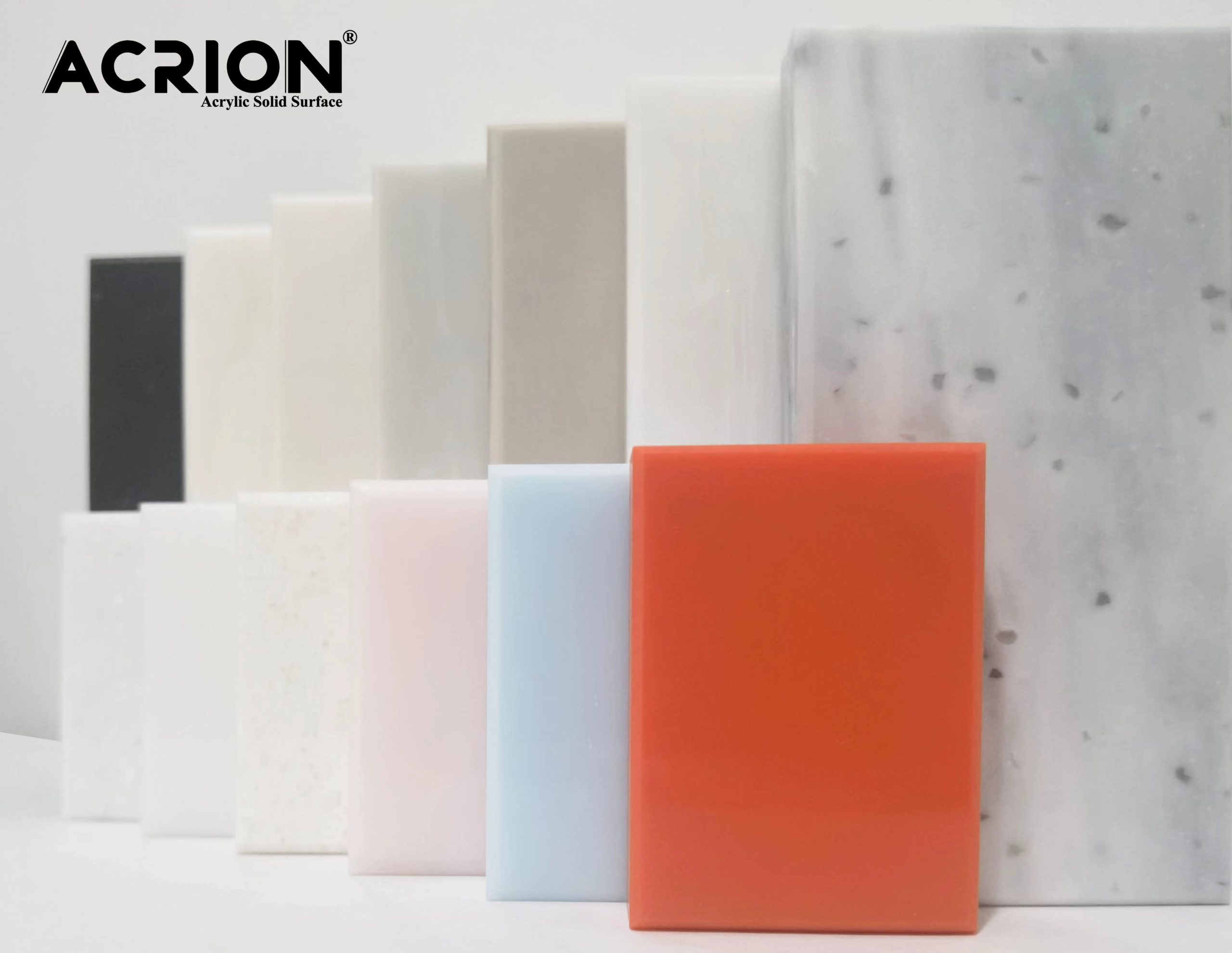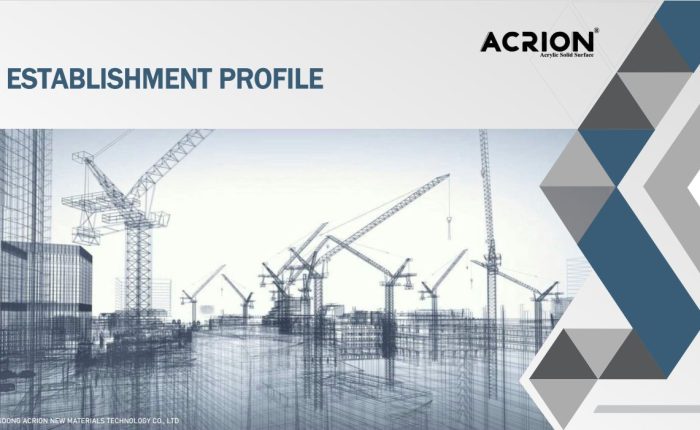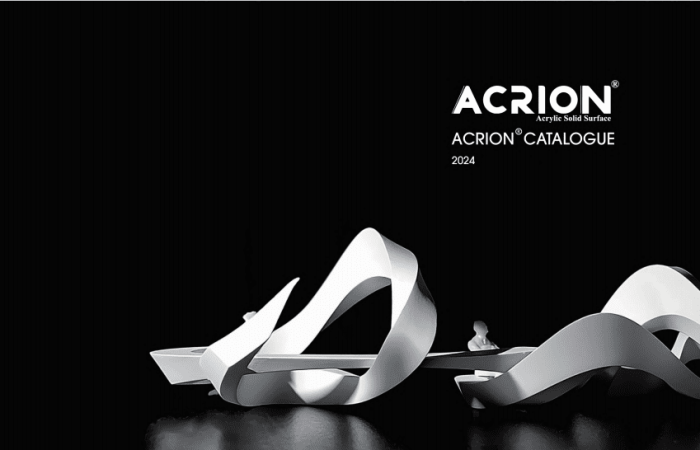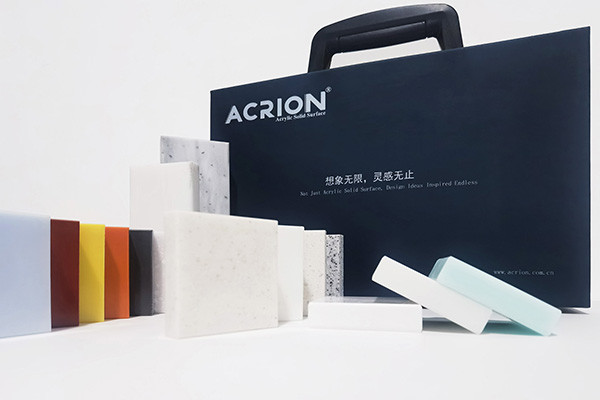ACRIONカウンタートップメンテナンスで避けるための一般的な間違い
ACRIRIONカウンタートップは、耐久性、シームレスな外観、汎用性のため、キッチンやバスルームに人気のある選択肢です。ただし、不適切なメンテナンスは、早期の摩耗、変色、または不可逆的な損傷につながる可能性があります。 ACRIONカウンタートップケアの一般的な落とし穴を理解することは、今後何年もその美しさと機能を維持するために不可欠です。
耐熱性の誤解
高温への直接暴露
ACRIRIONカウンタートップについて最も一般的な誤解の1つは、保護なしに極端な熱に耐える能力です。 ACRIRIONはある程度耐熱性がありますが、表面にホットポット、フライパン、または電化製品を直接配置すると熱衝撃を引き起こし、亀裂、変色、または反りを引き起こす可能性があります。これは、ストーブから冷たいカウンタートップに熱い鍋を移すなど、突然の温度変化に特に当てはまります。
保護対策の欠如
多くの住宅所有者は、材料が熱を処理できると仮定して、ホットアイテムの下でトリベット、ホットパッド、または断熱マットを使用できません。時間が経つにつれて、高温への繰り返しの暴露は表面を弱め、損傷を受けやすくします。非常に熱いオブジェクトとの短い接触でさえ、永続的なマークを残したり、カウンタートップの外観を変更したりする可能性があります。
メーカーのガイドラインを無視します
製造業者は、多くの場合、ACRIONカウンタートップの熱曝露限界に関する特定の指示を提供します。スロークッカーや電動グリルなどの加熱器具を表面に直接配置するなど、これらの推奨事項を無視すると、保証が無効になり、劣化を加速できます。適切な熱管理慣行については、ケアマニュアルを必ず参照するか、インストーラーに相談してください。
誤ったクリーニング製品と方法を使用します
過酷な化学クリーナー
ACRIRIONカウンタートップでは、仕上げを維持するために穏やかなクリーニングソリューションが必要です。オーブンクリーナー、漂白剤、またはアンモニアベースの製品などの研磨剤または酸性クリーナーを使用すると、表面をエッチングしたり、保護コーティングを取り除いたり、フェージングを引き起こしたりできます。これらの化学物質は、材料とも反応し、変色や鈍い、白亜の外観につながる可能性があります。
研磨クリーニングツール
スチールウール、研磨パッド、または過酷なブラシを添えてアクションをスクラビングすると、表面を傷つけることができ、汚れや細菌が蓄積できる小さな溝を作成します。時間が経つにつれて、これらの傷はより顕著になり、カウンタートップの美的魅力が減少します。 「非スクラッチ」スポンジでさえ、積極的に使用すると材料を損傷する研磨粒子が含まれている場合があります。
不適切な染色除去技術
インク、染料、錆などの頑固な汚れを扱うとき、一部の住宅所有者は、塗料シンナー、アセトン、マニキュアリムーバーなどの溶媒を使用することに頼ります。これらの物質は、アクロの表面を溶解または変色させ、不可逆的な害を引き起こす可能性があります。同様に、ナイフやカミソリの刃などの鋭いツールで粘着性の残留物を削り取ると、材料を凝集させ、永続的なマークを残すことができます。
定期的なメンテナンスと保護を無視します
流出に迅速に対処できない
アクロイオンは非多孔性ですが、ワイン、コーヒー、柑橘類のジュースなどの液体への長時間の曝露は、微視的な欠陥に浸透し、染色を引き起こす可能性があります。こぼれを放置することで、液体がより深く浸透し、除去がより困難になり、永続的な変色のリスクが高まります。これは、材料と化学的に反応できる酸性物質に特に当てはまります。
封印や研磨の必要性を見下ろす
天然石とは異なり、ACRIRIONは定期的なシーリングを必要としませんが、その表面は耐摩耗や化学物質への曝露のために時間の経過とともに光沢を失う可能性があります。一部の住宅所有者は、基本的なクリーニング以外にメンテナンスは必要ないと考えており、鈍い、すり減った外観につながると考えています。非攻撃性のあるACRIRIONセーフ製品を使用した定期的な研磨は、輝きを回復し、将来の損傷に対する保護障壁を作成することができます。
環境要因を無視します
直射日光への曝露は、特に窓の近くまたは天窓の下で、時間の経過とともに色あせたり黄色のアリオールのカウンタートップを消したりすることがあります。ウィンドウトリートメントやUV保護フィルムを使用しないと、このプロセスが加速し、不均一な着色や洗浄された外観になります。さらに、特にキャビネットの補強が不十分な領域では、適切なサポートなしでカウンタートップに重いオブジェクトを配置すると、垂れ下がったり割れたりすることがあります。



